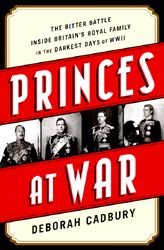
In 1606 King James I issue a charter to a group of investors to establish the Virginia Company. The company was formed into two groups, the London and Plymouth companies, and each was given rights to colonize the North American coast from south to north, with some overlap. The purpose of the companies was to help make England stronger and reap rewards for those who dared to "adventure" their capital—or their persons—in America. The company soon discovered that the gold in America was the land, but that money and labor were needed to exploit it. Therefore the company used various recruiting schemes in an attempt to lure more people to invest in and/or go to Virginia, but its only real asset was the land and what could be produced on it. As has been noted already, the problem in Europe was finding enough land for the people: in America, the reverse was true—there was plenty of land but too few people to develop it profitably. The fact that labor was more valuable than land constantly undermined traditional European ideas of class and position in America; in fact, one can detect early seeds of rebellion and faint democratic stirrings even in the early colonies.
Many plans were used to try to increase the labor supply, including the use of Indians as slaves. The critical shortage of labor also contributed to the growth of slavery. While the Indians were excellent farmers, they did not take to slavery, and because they could easily escape, that experiment failed. Even as farmers, Indians were not as wedded to the idea of land ownership as Europeans; in fact, most Indians didn't understand the concept of individual ownership of land. Furthermore, idleness was a virtue among male Indians. They often laughed at white men farming, or doing "women's work."
(It should be mentioned here that Africans did not take to slavery any more than Indians, but were much less able to escape, because they were in alien country and had no place to which they could safely flee.) The Virginia settlers were patriots, Christians, men seeking personal profit and betterment of their economic circumstances. They were urged to come "for the good of your country and your own, to serve and fear God. . ." Emigration to America became a selection process. The temperament and personality of the settler was that of someone searching for the unknown, escaping from the intolerable.
The goals of the companies and to some extent of the settlers were to secure a place, find gold, civilize the natives, and find a passage to India. Indians were seen both as laborers and as potential consumers of European goods: It was a form of economic imperialism, later called the "last stage of capitalism." As it turned out, opportunities of all kinds were indeed plentiful, including opportunities for political power not available in England.
Note: A class system did evolve in Virginia, which was the most aristocratic of the colonies; Virginians believed in rule by elite, though that elite might be based on achievement and wealth rather than by name or birthright. Virginia started as a "white male democracy," in a limited sense, but that system also evolved. The Virginia House of Burgesses, established in 1619, is the forerunner of today's Virginia Assembly.




 World History
World History









